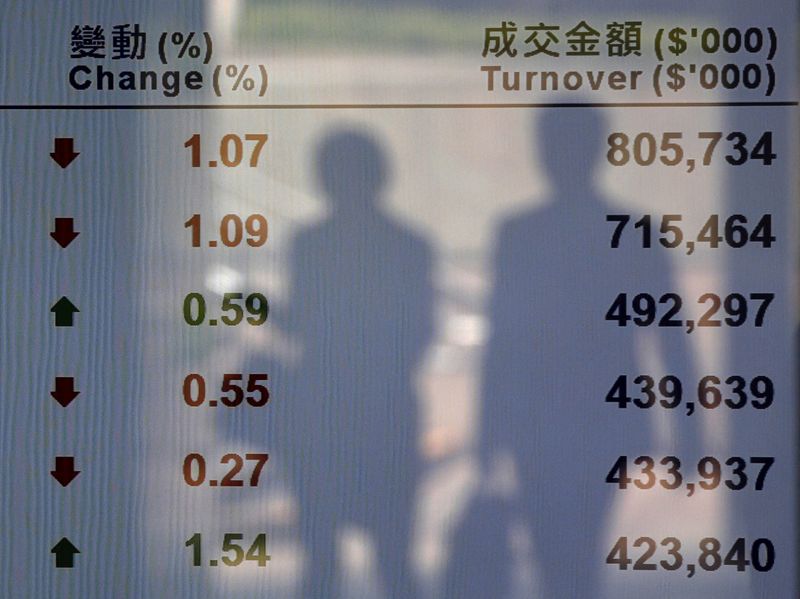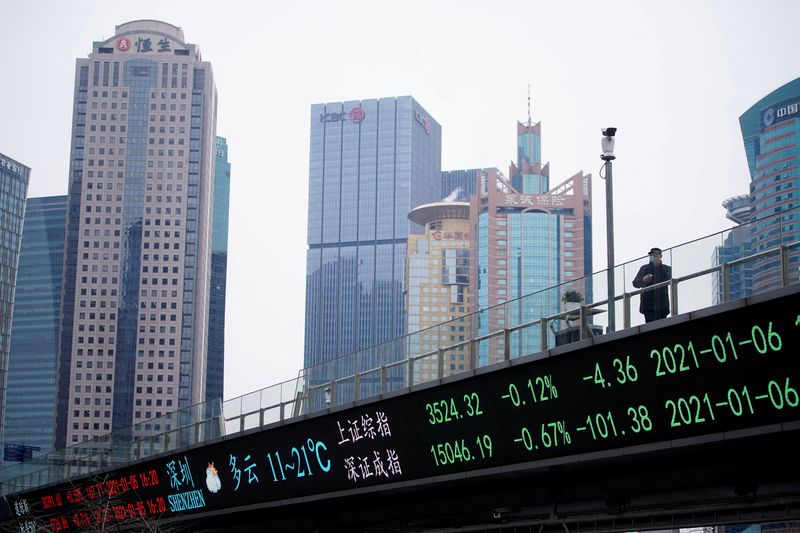By Samuel Shen and Selena Li
SHANGHAI/HONG KONG (Reuters) - Global index-tracking fund managers with exposure to U.S.-listed Chinese firms are pushing index providers to swap into their Hong Kong-traded peers as delisting risks threaten to roil the $37 billion market for China-focused exchange-traded funds (ETFs).
Washington is demanding complete access to the audit papers of these firms, a request so far denied by Beijing. Without a solution, Chinese American Depositary Receipts (ADRs) will be delisted by 2024, potentially bashing ETFs with big ADR exposure.
"We have proactively engaged all of our index providers on the risks associated with ADR delisting," said Brendan Ahern, CIO of Krane Funds Advisors, which manages China-focused ETFs based on CSI and MSCI indices.
"Passive ETF managers will want their index providers to transition from ADRs to the HK share classes in order to avoid tracking error," he said, referring to the unwelcome performance difference between an ETF and the index it tracks.
"Index providers are moving at varying speeds," he added.
ETF managers including CSOP Asset Management and Samsung (KS:005930) Asset Management said they have also nudged their index providers to swap Chinese ADRs into Hong Kong-traded peers, where available.
Some smaller index companies, such as China Securities Index Co, said they have started the switching but the likes of S&P Dow Jones Indices and MSCI are more cautious, citing the need for further clarity around Sino-U.S. audit talks, and concerns over relatively low liquidity levels in Hong Kong.
Also, many active fund managers, unfettered by index-tracking needs, have already dumped ADRs, or made the transition to Hong Kong shares.
TRACKING ERRORS
ADR exposure of the S&P New China Sector Index ETF, run by CSOP, has decreased to 6% from over 30% a year ago after discussions between the Hong Kong-based asset manager and its index provider, portfolio manager Wang Yi said.
Last month, Chinese index publisher China Securities Index started prioritising inclusion of Hong Kong-listed stocks for its CSI Overseas China Internet Index, when a company has multiple listings eligible for selection.
The index is tracked by a $6 billion ETF run by KraneShares and many other index funds.
Others are also holding out.
Earlier this month, China proposed rules that would potentially give U.S. regulators access to Chinese companies' audit working papers, as Beijing seeks to reach a deal to keep Chinese ADRs listed.
Mike Shiao, Invesco's chief investment officer, Asia ex-Japan, said the overhang on U.S.-listed Chinese companies was "partially" removed, but Invesco, which runs an ETF heavily invested in ADRs, would continue to monitor the U.S. response.
S&P Dow Jones declined comment on potential changes to methodologies, while MSCI and FTSE Russell also declined comment.

Underscoring some investors' impatience, the KraneShares CSI China Internet ETF said last month that it aimed to fully transition to Hong Kong shares in coming months.
"Could an ETF convert without the index provider? Yes, though it would create tracking error," KraneShares' Ahern said. "Obviously one would rather have tracking error versus holding a stock through a delisting," he said.
